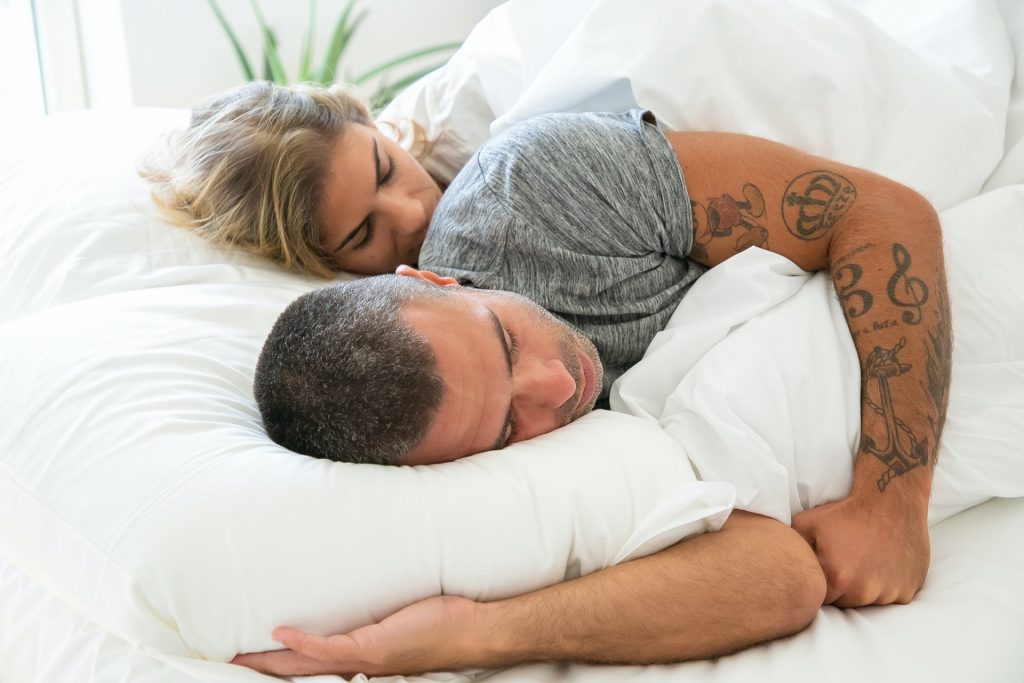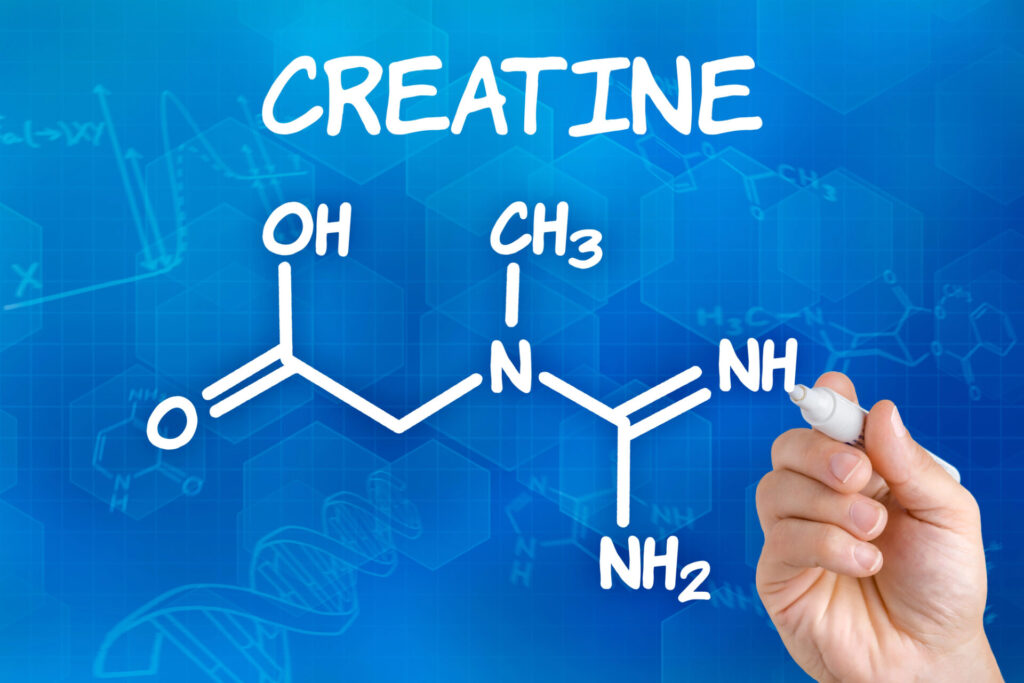Clinical Studies Show the Usefulness of This Parent Hormone for Female Libido and Fertility
Much like estrogen and testosterone, levels of DHEA and DHEA-S decrease with age and are approximately 25% of their peak by age 70.2[1] Thus, we see substantial research regarding DHEA and its supplementation surrounding common concerns with aging: libido, bone strength, metabolic health, and even female infertility. Here, we take a look at the clinical findings with DHEA as it pertains to female sexual health, libido and fertility.
DHEA and its sulfated form, DHEA-S, are the most abundant steroid hormones in the human body.[1] They are primarily produced in the adrenal cortex, with smaller amounts of DHEA being synthesized in the ovaries and testes. Data suggests that DHEA and DHEA-S are also produced in the brain.[2] DHEA is a precursor to estradiol, estrone, testosterone, and 5α-dihydrotestosterone (5α-DHT).[3] As an androgen, DHEA has roughly 1/20th of the androgen potency of testosterone.[4]
DHEA and Libido
In a one year randomized, double-blind, placebo-controlled trial (RDBPCT), a population of 280 men and women ranging in age from 60 to 79 years were given 50 mg of DHEA or placebo daily for a year.5 With supplementation, DHEA-S levels were restored to “normal youthful levels” in both sexes. In women, DHEA supplementation also led to a significant increase in both testosterone and estradiol levels.
In this study, numerous clinical parameters were also assessed.[5] Changes were most noteworthy in the women, particularly those over 70 years of age. In women over age 70, DHEA significantly improved most parameters related to libido. DHEA supplementation also positively affected bone health, decreasing bone turnover in this age group of the women, and improved skin hydration and sebum levels in all individuals as well. No adverse effects associated with DHEA supplementation were noted.
In addition to the findings in women age 70 and older, DHEA may improve libido in younger females as well. In post-menopausal women age 50 to 60, DHEA at the low dose of only 10 mg a day for 12 months was shown to significantly improve sexual function and frequency compared to the control intervention (400 IU of vitamin D).[6] In a population of men and women with hypoactive sexual desire disorder, at a dose of 100 mg/day for six weeks, treatment with DHEA significantly improved sexual arousal and satisfaction in women, however, in the men no improvements were seen.[7]
It is not uncommon for women to have sexual side effects from oral contraceptive (OC) use, with a small but still substantial percentage having a decline in libido.[8] In women taking OCs, the addition of 50 mg of DHEA daily significantly improved numerous markers of sexual function which had declined with initiation of the OC medication.[9] The women who had higher free testosterone levels during DHEA administration were found to experience greater effects of DHEA on sexual arousal and desire.
In women, DHEA conversion to testosterone by the adrenals is the primary source of testosterone; hence, with adrenal insufficiency, women often experience a decline in libido, while in men, sexual function and testosterone levels are largely preserved.[10] Multiple studies have shown that 50 mg of DHEA is a suitable dose for women with adrenal insufficiency in addition to other indicated treatments,[11],[12],[13] and supports improvements in hormone levels, metabolic parameters, well-being, anxiety and depression, and frequency of sexual thoughts and interest. DHEA also has been shown to improve alertness, stamina, and sexual interest or activity in women with hypopituitarism when added to other indicated hormone replacement therapies.[14]
Supplementation with DHEA has been shown to enhance sexual arousal in postmenopausal women acutely as well. In a RDPBCT with crossover, oral administration of 300 mg of DHEA significantly increased both the mental and physical arousal response to viewing an erotic video 60 minutes later.[15] However, a similarly designed study did not show a significant effect in premenopausal women.[16]
In-Vitro Fertilization and DHEA
The vast majority of research with DHEA concerning fertility is concentrated in the arena of infertility due to diminished ovarian reserve. Studies in rats suggest that DHEA reduces follicular atresia; that is, the process by which follicles not selected for maturation involute and become part of the parenchyma.[17] By doing so, the total number of follicles that can later potentially grow into larger, mature oocytes that are viable for fertilization increases. However, when the period of DHEA supplementation was doubled from 15 to 30 days (roughly equivalent to going from 1.5 to 3 human years[18]), a follicle-reducing effect was seen, suggesting that DHEA may not be appropriate as a very long-term intervention.[19]
Human studies have similar findings. In women who were poor responders to in vitro fertilization (IVF), the majority of whom were of advanced age or diagnosed with low ovarian reserve, supplementation of DHEA at a dose of 75 mg/day for three months prior to ovarian stimulation led to a highly significant improvement in four of the five oocyte parameters assessed.[20] With IVF, there was a 31% clinical pregnancy rate, and a live birth rate of 19%. Additional subgroup analysis found that there was a significant increase in high-quality embryos in the patients less than 38 years of age and in those who became pregnant following DHEA treatment.
In a randomized, placebo-controlled study of women who previously had a poor response to ovarian stimulation, DHEA was also provided at 75 mg a day for a period of six weeks prior to ovulation induction and IVF procedures.[21] Those receiving DHEA were observed to have significantly improved embryo quality as well as a significantly higher live birth rate versus controls (23.1 vs. 4%).
In addition to the positive findings seen with extensive reproductive assistance, one study reports of the positive impact DHEA had on spontaneous pregnancy. The women were enrolled in a study with a design much like the others previously described; however, after taking 75 mg of micronized DHEA daily for a period of time, a substantial amount of the women spontaneously became pregnant.[22] In fact, of the women taking DHEA, in the 39 women under age 40 who had previously been poor responders to IVF, there were 10 spontaneous pregnancies, while in women age 40 and older, 21% of those taking DHEA became pregnant. There was not a control group for comparison with the women under age 40, but in those over 40, the women in the control group not receiving DHEA only had a spontaneous pregnancy rate of 13%.
Many other clinical studies have also assessed the impact of DHEA on female infertility due to diminished ovarian reserve, with mostly positive findings.[23],[24],[25],[26] Clearly, this represents yet another category of anti-aging effects that this pro-hormone that will increasingly be investigated for, particularly as maternal age continues to rise.
Carrie Decker, ND, graduated with honors from the National University of Natural Medicine in Portland, OR. Prior to becoming a naturopathic physician, Dr. Decker was an engineer and obtained graduate degrees in biomedical and mechanical engineering from the University of Wisconsin-Madison and University of Illinois at Urbana-Champaign, respectively. She continues to enjoy academic research and writing and uses these skills to support integrative medicine education as a writer and contributor to various resources.
[1] Nieschlag E, et al. The secretion of dehydroepiandrosterone and dehydroepiandrosterone sulphate in man. J Endocrinol. 1973 Apr;57(1):123-34.
[2] Maninger N, et al. Neurobiological and neuropsychiatric effects of dehydroepiandrosterone (DHEA) and DHEA sulfate (DHEAS). Front Neuroendocrinol. 2009 Jan;30(1):65-91.
[3] Legrain S, et al. Dehydroepiandrosterone replacement administration: pharmacokinetic and pharmacodynamic studies in healthy elderly subjects. J Clin Endocrinol Metab. 2000 Sep;85(9):3208-17.
[4] Sadovsky R. Androgen deficiency in women: Review of the subject. American Family Physician. 2001 Dec 15;64(12):2009.
[5] Baulieu EE, et al. Dehydroepiandrosterone (DHEA), DHEA sulfate, and aging: contribution of the DHEAge Study to a sociobiomedical issue. Proc Natl Acad Sci U S A. 2000 Apr 11;97(8):4279-84.
[6] Genazzani AR, et al. Effect of 1-year, low-dose DHEA therapy on climacteric symptoms and female sexuality. Climacteric. 2011 Dec;14(6):661-8.
[7] Bloch M, et al. The use of dehydroepiandrosterone in the treatment of hypoactive sexual desire disorder: a report of gender differences. Eur Neuropsychopharmacol. 2013 Aug;23(8):910-8.
[8] Burrows LJ, et al. The effects of hormonal contraceptives on female sexuality: a review. J Sex Med. 2012 Sep;9(9):2213-23.
[9] van Lunsen RHW, et al. Maintaining physiologic testosterone levels during combined oral contraceptives by adding dehydroepiandrosterone: II. Effects on sexual function. A phase II randomized, double-blind, placebo-controlled study. Contraception. 2018 Jul;98(1):56-62.
[10] Lang K, et al. Is DHEA replacement beneficial in chronic adrenal failure? Best Pract Res Clin Endocrinol Metab. 2015 Jan;29(1):25-32.
[11] Arlt W, et al. Oral dehydroepiandrosterone for adrenal androgen replacement: pharmacokinetics and peripheral conversion to androgens and estrogens in young healthy females after dexamethasone suppression. J Clin Endocrinol Metab. 1998 Jun;83(6):1928-34.
[12] Arlt W, et al. Dehydroepiandrosterone replacement in women with adrenal insufficiency. N Engl J Med. 1999 Sep 30;341(14):1013-20.
[13] Dhatariya K, et al. Effect of dehydroepiandrosterone replacement on insulin sensitivity and lipids in hypoadrenal women. Diabetes. 2005 Mar;54(3):765-9.
[14] Johannsson G, et al. Low dose dehydroepiandrosterone affects behavior in hypopituitary androgen-deficient women: a placebo-controlled trial. J Clin Endocrinol Metab. 2002 May;87(5):2046-52.
[15] Hackbert L, Heiman JR. Acute dehydroepiandrosterone (DHEA) effects on sexual arousal in postmenopausal women. J Womens Health Gend Based Med. 2002 Mar;11(2):155-62.
[16] Meston CM, Heiman JR. Acute dehydroepiandrosterone effects on sexual arousal in premenopausal women. J Sex Marital Ther. 2002 Jan-Feb;28(1):53-60.
[17] Hassa H, et al. Effects of dehydroepiandrosterone (DHEA) on follicular dynamics in a diminished ovarian reserve in vivo model. Syst Biol Reprod Med. 2015 Jun;61(3):117-21.
[18] Sengupta P. The Laboratory Rat: Relating Its Age With Human’s. Int J Prev Med. 2013 Jun;4(6):624-30.
[19] Ikeda K, et al. Long-term treatment with dehydroepiandrosterone may lead to follicular atresia through interaction with anti-Mullerian hormone. J Ovarian Res. 2014 Apr 30;7:46.
[20] Hyman JH, et al. DHEA supplementation may improve IVF outcome in poor responders: a proposed mechanism. Eur J Obstet Gynecol Reprod Biol. 2013 May;168(1):49-53.
[21] Wiser A, et al. Addition of dehydroepiandrosterone (DHEA) for poor-responder patients before and during IVF treatment improves the pregnancy rate: a randomized prospective study. Hum Reprod. 2010 Oct;25(10):2496-500.
[22] Fusi FM, et al. DHEA supplementation positively affects spontaneous pregnancies in women with diminished ovarian function. Gynecol Endocrinol. 2013 Oct;29(10):940-3.
[23] Zhang H, et al. Dehydroepiandrosterone plus climen supplementation shows better effects than dehydroepiandrosterone alone on infertility patients with diminished ovarian reserve of low-FSH level undergoing in-vitro fertilization cycles: a randomized controlled trial. Reprod Biol Endocrinol. 2016 Feb 16;14:9.
[24] Zhang HH, et al. Dehydroepiandrosterone improves follicular fluid bone morphogenetic protein-15 and accumulated embryo score of infertility patients with diminished ovarian reserve undergoing in vitro fertilization: a randomized controlled trial. J Ovarian Res. 2014 Oct 21;7:93.
[25] Barad D, Gleicher N. Effect of dehydroepiandrosterone on oocyte and embryo yields, embryo grade and cell number in IVF. Hum Reprod. 2006 Nov;21(11):2845-9.
[26] Tsui KH, et al. Effects of dehydroepiandrosterone supplementation on women with poor ovarian response: A preliminary report and review. Taiwan J Obstet Gynecol. 2015 Apr;54(2):131-6.





